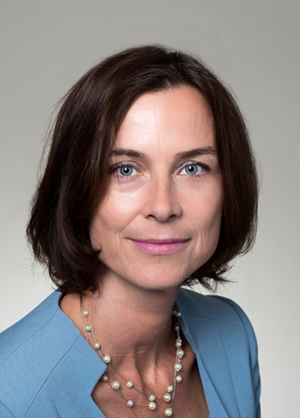
Claudia Borke. Creative Services photo.
Claudia Borke remembers the days when George Mason University’s academic advising was uneven at best, too often characterized by inconsistent messaging and long lines outside academic advisor offices like hers.
Reforms spurred by the Academic Advising Reform Committee recommendations from 2014 provided the means to better things, but it’s been the tireless efforts of Borke and others that have helped bring that dream of improved academic support to fruition.
“Things were all over the place before,” said Borke, an academic advisor in the Department of Bioengineering.
Perhaps the most significant academic reform to come about was the advent of the Integrated Planning and Advising for Student Success (iPASS) grant that has allowed Borke and others to rely on technology to help provide better academic advising and degree planning services. George Mason was one of 26 institutions to begin using the Student Success Collaborative-Campus (SSC) platform in 2015.
An integrative approach that promotes shared ownership for educational progress among students, faculty, and staff, iPASS encompasses services that help students formulate and advance toward educational goals, which could include advising, counseling, progress tracking and academic early alerts to better help students get their degrees.
Now fully available, SSC provides academic advisors with student academic information, a location for shared note taking, caseload management and communication tools, reporting functionality and an online appointment scheduler for students. The Institutional Reports in SSC offer an analysis of whether students are likely to graduate in their chosen major based on performance in success-maker courses. This technology helps reduce advisor workloads and provides valuable insights that trigger interventions.
“Now I don’t have to scramble to get all the information from various places,” Borke said. “It’s all centralized. Everybody can see everything going on with the student. You can see the entire academic picture.”
Jeannie Brown Leonard, the dean for Student Academic Affairs—Advising, Retention and Transitions, credited Borke for being among the first to embrace the new system.
“Advising conversations are more developmental, more purposeful and take academic advising to the next level,” Brown Leonard said.
Mason lists roughly 275 academic advisors on campus, consisting of faculty, professional advisors and graduate assistants, with each carrying varying workloads, Brown Leonard said. The most recent data showed an average of 221 distinct SSC users this past spring among 73 active locations around campus, well up from the 35 users in 2015.
The dedicated individual advisors are still tasked with making sure they connect all the dots.
“The first time I needed help was when I won my NASA Aeronautics Scholarship,” said Katrina Colucci-Chang, Borke’s former advisee who graduated in May with a degree in bioengineering and a minor in dance. “There were so many papers that needed to be filled out that I had no idea existed. And she directed me to the people who would know. If it weren’t for her, probably my NASA scholarship would not have gone through.”
Colucci-Chang, who is now a first-year PhD student at Virginia Tech, further credited Borke for doing extra things such as always taking the time to carefully explain matters and making sure her appropriate academic paperwork was always filed in a timely manner.
“I am hoping to find somebody like her in my current location,” Colucci-Chang said. “But let’s be honest—Claudia is irreplaceable. Nobody can do half the things Claudia does.”
